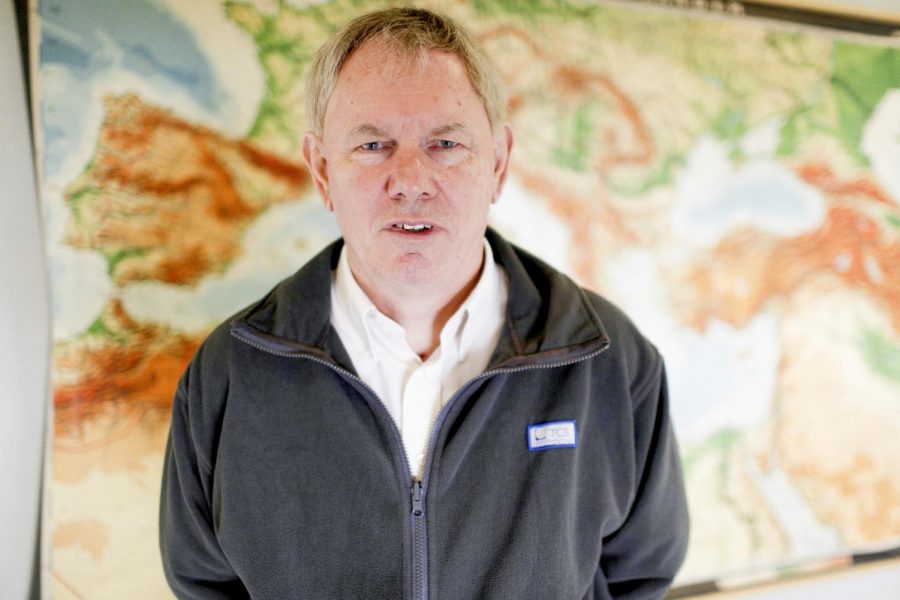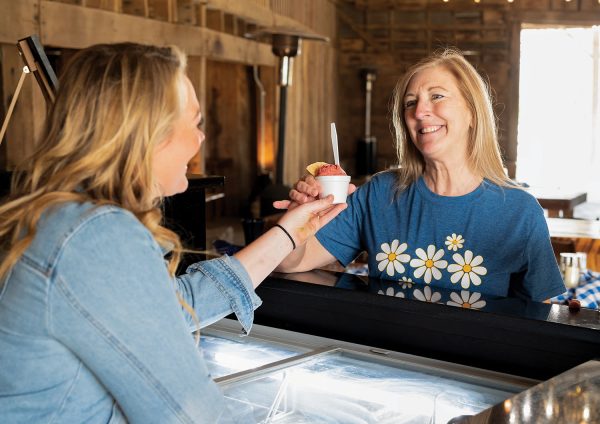Professor returns from eighth circumnavigation
November 18, 2014
David Keeling recently completed his eighth trip around the world, furthering his passion for travel and geography.
Keeling, distinguished university professor of geography and head of the geography and geology department, began his worldly travels in the 1970s, when he sailed to Australia, around South America and Africa. He said that he was inspired to travel as early as the age of 5 or 6, when he would study maps to find where different places were. Keeling also attributes his love of traveling to moving from his home country of England to Australia.
Keeling said his more recent trips have been with the American Geographical Society. He has been on the board of directors with the organization for the last decade. His recent trip with the society was part of their educational outreach programs. Keeling often goes on these trips as a lecturer with the organization.
“We lecture on geographic, political and economic issues,” Keeling said.
However, not all the people who went on this trip were lecturers and professors like Keeling. He said many of the people who go on these trips are often business owners or in similar white collar occupations and companies. The Geographic Society often assigns specific themes with these trips and this previous expedition’s theme was golf.
“Most of the people on the trip were playing golf in these destinations around the world,” Keeling said.
He said that the themes of these trips are often determined by what particular interests the group has and what would bring them best together. Keeling said this year, the golf theme was selected as the trip was organized by a company that has run many golf trips in the past. They had never done a circumnavigation before and wanted to experiment with how it would work.
“Part of the process is that they get to play golf, but get an education as well,” Keeling said.
His most recent trip lasted 24 days, starting in the United States and ending in southern Spain. This trip featured a tour of the South Pacific, Asia, Africa and Europe. He said that many of the lectures he gave during the trip discussed the geography of the different places that were visited and some of the cultural issues surrounding these locations.
“One of the themes (of the trip) was economic resources,” Keeling said. “What do they have in these countries, how do their economies run, what are their challenges?”
On this trip in particular Keeling said that he noted a pace of change from the many previous trips he had taken. He remarked on returning back to Dubai and noting how much the country had changed since he had last been there. When traveling to places such as Dubai, Keeling falls into the habit of taking many pictures of the landscape so he can have a reference point for when he returns.
“Everywhere is so profoundly different, that’s one of the great things about going to all these different destinations,” Keeling said.
Keeling encouraged all students to study abroad to see how other places and other cultures are compared to what they’ve seen in the United States and to get out of their comfort zone.
Keeling is not the only professor in the geography and geology department who encourages students to do this.
Jason Polk, an assistant professor of geoscience, is also a traveler and advocates studying abroad.
Some of Polk’s trips have taken him to areas of Asia and Europe. Polk said that as a geographer, these trips help further his research and geographical knowledge by giving him first-hand experience of different landscapes and cultures. For Polk, going on these trips is about gaining the experiences for himself as much as it is teaching his students.
“It’s all about taking and teaching the students to have these experiences,” Polk said.
Keeling and Polk both place high value in what they learn from their experiences, but also what they can teach to their students as well.
“Students learn far more by being in a place than listening to stories or information in the classroom,” Keeling said. “That’s why we encourage all students of having the experience of going to a different place.”




















![Megan Inman of Tennessee cries after embracing Drag performer and transgender advocate Jasmine St. James at the 9th Annual WKU Housing and Residence Life Drag Show at Knicely Conference Center on April 4, 2024. “[The community] was so warm and welcoming when I came out, if it wasn’t for the queens I wouldn’t be here,” Inman said.](https://wkuherald.com/wp-content/uploads/2024/04/smith_von_drag_3-600x419.jpg)





